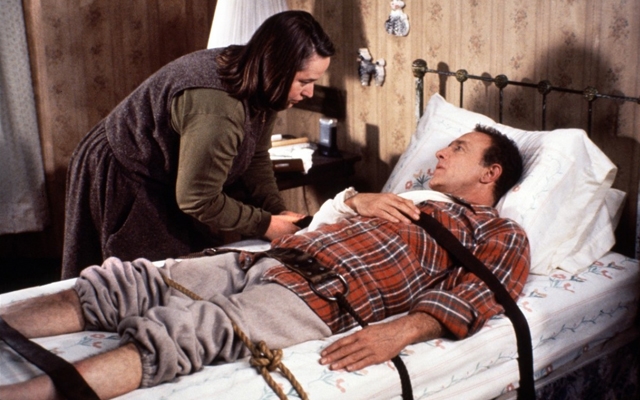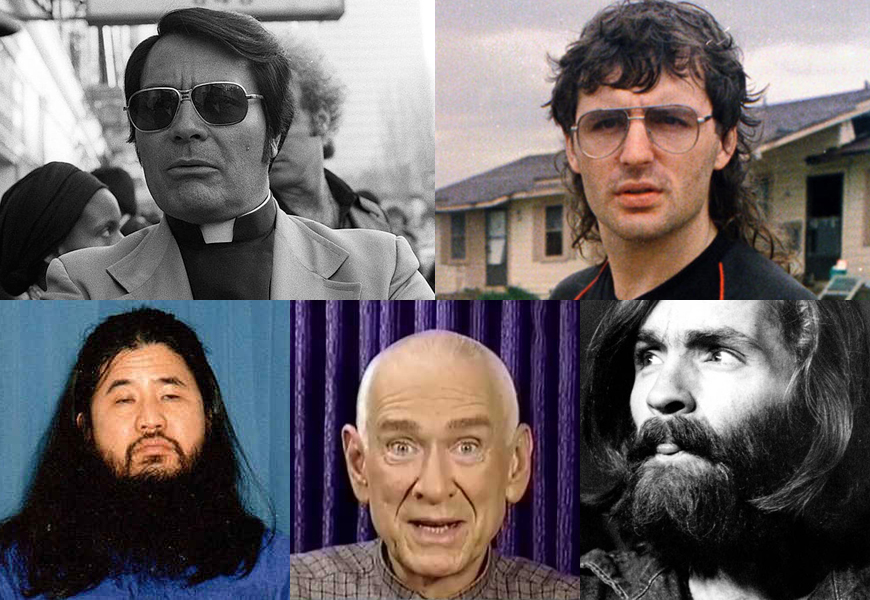Sometimes it seems like half the movies that come out these days are based on novels. Stephen King is just one of those writers that consistently comes up with unique stories that translate perfectly to the screen. A lot of people think of King as a horror writer, but he has crossed many genres, including some that have inspired award-winning films. Of the 50 novels and over 200 short stories Stephen King has published, countless have been made into movies, and miniseries’ for TV. So which ones are must-watch? Read on to find out.
Carrie (1976)
King’s very first novel, Carrie, was first adapted into film in 1976, and starred Sissy Spacek as the title character. The film follows an outcast who discovers she has telekinetic powers, which she uses to exact revenge on the classmates who made fun of her. Religious themes are also prevalent, as are something that a lot of people can relate to: high school bullies. Clearly, the subject matter is timeless, as the second remake was released in 2013, and there was even a Broadway musical based on the novel.
The Shining (1980)
Stephen King may have called Stanley Kubrick’s film adaptation of The Shining, more of a loose interpretation, but it is still an essential addition to the horror movie genre. The film focuses on the winter caretaker (played by Jack Nicholson) of the isolated Overlook Hotel, who is slowly influenced by supernatural forces, and descends into madness before trying to kill his wife and son. If you have ever seen the scene where Jack Torrance hacks through a wooden door with an axe, or heard Danny Torrance creepily chant “redrum”, then you owe it to yourself to watch the whole film.
Children of the Corn (1984)
There isn’t much creepier than an evil kid, except maybe a whole town of evil kids with no adults around to set them straight. Add devil-like worship to that and you have the adaptation of King’s 1977 short story, Children of the Corn. The story is set in Gatlin, Nebraska where all the children have been enticed to murder the adults by a mysterious figure they call “He Who Walks Behind the Rows”, in order to ensure a successful corn harvest. The film inspired a number of sequels, which unfortunately were not written by Stephen King.
Stand by Me (1986)
King’s novella, The Body, inspired this coming of age film following four friends who set out to find the body of a boy went missing. The film is a classic, featuring well known child actors like River Pheonix and Corey Feldman, and even a young Kiefer Sutherland. The book is one of many that shows King’s ability to portray children believably, and the adaptation to film focuses on timeless themes of friendship, growing up, and standing up for yourself.
Pet Sematary (1989)
Before there were zombies, there was Stephen King’s Pet Sematary, about a house built near a pet cemetery. The family living in the house soon figure out that any bodies buried in the cemetery end up reanimating and coming back to kill people. The film is classic Stephen King, using supernatural elements to produce unexpected twists, and ending with a character never learning his lesson. The film also spawned a less successful sequel, but it was not written by King.
Misery (1990)
Kathy Bates is currently the only actor to have won an Academy Award for a role based on one of Stephen King’s characters, for her portrayal of Annie Wilkes in Misery. She plays a deranged super fan of the main character’s book series who becomes enraged when she finds out he has killed off her favourite character. She decides to keep him locked up in her isolated house, and tries to force him to write the next book the way she envisions it. The film relies solely on psychological fear, giving it that spooky, “this could really happen” quality.
Shawshank Redemption (1994)
Based on another novella entitled, Rita Hayworth and Shawshank Redemption, the film, The Shawshank Redemption, was nominated for numerous awards, including the Oscar for Best Picture. Starring Tim Robbins and Morgan Freeman, the film shows life in prison for a man convicted of murdering his wife and her lover. He maintains his innocence, but eventually accepts he will never be released from prison. The novella is one of King’s many attempts at drama, and it proves to be just as successful on film as his usual horror stories.
The Green Mile (1999)
Another Academy Award nominated adaptation of one of King’s novels, The Green Mile, follows a death row corrections officer (Tom Hanks) and his experience with an unusual inmate, named John Coffey (Michael Clarke Duncan). Coffey has been sentenced to death for murdering two young girls, but during his time on death row he reveals he has extraordinary powers of healing, and an ability to sense things no one else can. Duncan’s performance earned him an Oscar nod for Best Supporting Actor, which is well deserved.
The Mist (2007)
Based on a 1980 novella, The Mist is about a group of people who have to find a way to survive when a mysterious fog full of monsters descends on their small town. The ensemble cast of characters, show how half the battle of survival is simply getting along with the people around you, despite the dangers that might be waiting outside. The ending of the film is completely different from King’s novella version, but not any less terrifying.












